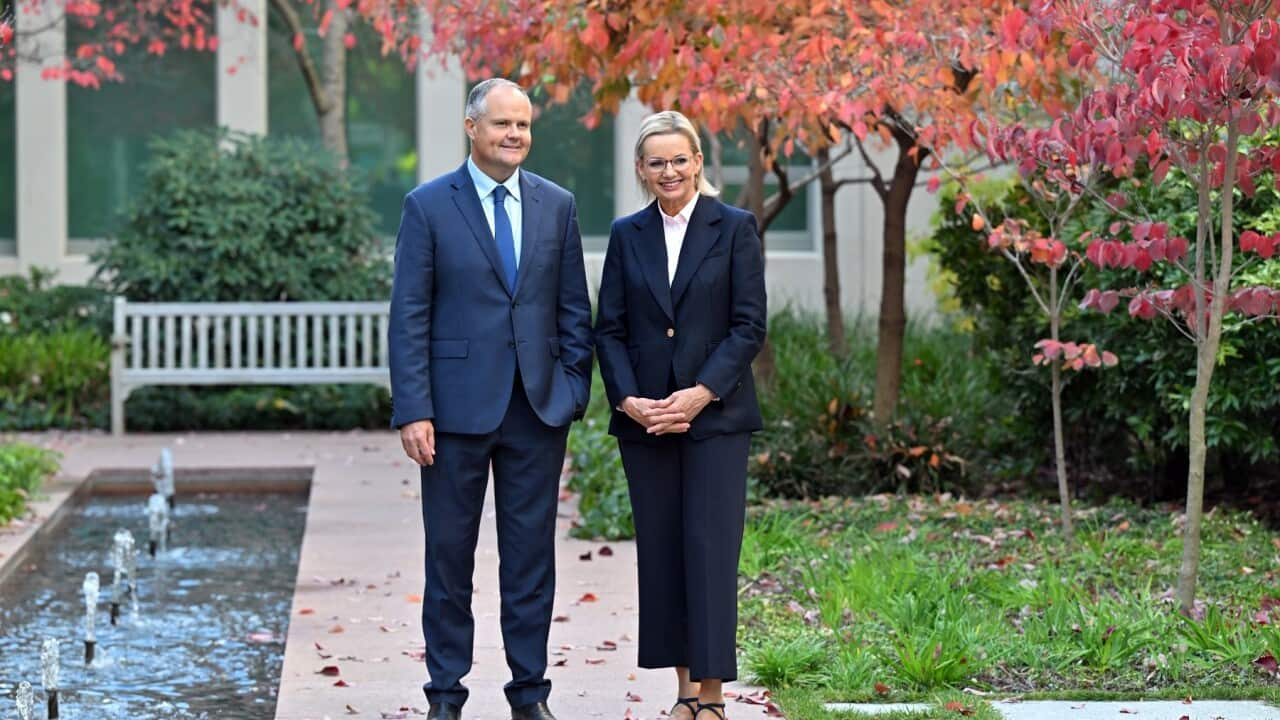TRANSCRIPT
Edan Alexander hadn't seen his family in nearly 600 days.
The last living American hostage in Gaza has now reunited with his parents and grandmother in a Tel Aviv hospital.
Hamas militants seized the 21-year-old soldier from his southern Israel military base in October 2023 – where he volunteered to stay over the Jewish Sabbath.
The thrill of his release mirrored among crowds in Tel Aviv's Hostages Square.
A live broadcast captured the moment Alexander was transferred from Hamas captivity to an International Committee of the Red Cross official amid a short pause in Israel's military operations.
That too was being watched in his native suburb of Tenafly, New York City.
"So this is Tenafly, basically Edan's home. We're just like a very connected town. It's all about community, it's all about the families that live here, and the Alexanders are like a big part of this community."
"The whole community is mourning for him and we all feel for his parents, his whole family. It's a suffering that he's going through and that we're all going through that's unfathomable for everybody. And especially I know personally with my brother, it's been the hardest year and a half of his entire life."
Hamas says it released Alexander as a goodwill gesture toward the Trump administration with the hope of reviving talks on ending the war in Gaza.
His release occurred just as President Trump departed for Saudi Arabia on what he called a "historic" tour of the Arab Gulf nations – that will mix urgent diplomacy on Gaza and Iran with other business deals.
In recent weeks, Mr Trump has seemed to cool on his efforts to end the Gaza war.
It also appears that he's been increasingly at odds with Israeli Prime Minister Benjamin Netanyahu on the issue, as well as over strikes on Yemen's Houthi rebels and on how to handle Iran's nuclear program.
Still, the Israeli Prime Minister has thanked President Donald Trump for his diplomatic efforts.
"This was achieved thanks to our military pressure and the diplomatic pressure exerted by President Trump. This combination is a winning formula. I spoke today with President Trump. He told me: 'I am committed to Israel. I am committed to continuing to work in close coordination with you'—to achieve all our war objectives: to release all the hostages and to defeat Hamas. These goals go hand in hand. They are interconnected."
Israel says 58 hostages remain in captivity, with about 23 of them said to be alive.
All were set to be released under a planned second phase of the ceasefire agreement that began in January.
But negotiations on that phase failed to materialise when Israel resumed its offensive on Gaza in March – a move that has drawn condemnation among dozens of freed hostages and relatives of those still held captive.
Israeli Health Ministry representative, Dr Hagar Mizrahi, says the health of the remaining hostages is in jeopardy.
"As a physician and the person in charge of receiving the returning captives to hospitals and their subsequent medical care, I must emphasise that with every passing day they are held in such conditions their health is subject to clear and immediate danger."
In Gaza, famine looms.
Since Israel's blockade began on 2 March, aid groups have stopped food distribution.
Bakeries have closed.
Charity kitchens handing out bowls of pasta or lentils are rapidly closing for lack of supplies.
Markets – where prices have skyrocketed – are empty of almost everything but canned goods.
Local production of vegetables has plummeted, with Israeli forces having destroyed 80 per cent of Gaza's farmlands, and much of the rest rendered inaccessible inside newly declared military zones.
A new report by the Integrated Food Security Phase Classification forecast that 2.1 million people across Gaza – roughly the entire population – would likely experience high levels of acute food insecurity by the end of September.
UN spokesperson Stéphane Dujarric explains those findings.
"To give you some exact figures, 470,000 people in Gaza are facing catastrophic hunger. That's what we refer to as IPC Phase 5, which is the highest level of classification, and the entire population is experiencing acute food insecurity. The report also projects that an alarming 71,000 children and more than 17,000 mothers will need urgent treatment for acute malnutrition. Over 70 days into the blanket ban imposed by Israeli authorities on the entry of any supplies into Gaza, stocks have run out, bakeries have shut down, community kitchens are closing daily and people are starving."
Israel maintains that its blockade on essential humanitarian aid is applying necessary pressure on Hamas to release the remaining hostages.
But the UN says it's only punishing civilians, with Mr Dujarric warning that Gaza is on the brink of catastrophe.
"This is not a natural disaster, but a human-made catastrophe that the world should not allow. The way to address this crisis should be clear, and we've been very clear on that front. Open up Gaza so that aid and other essential supplies can reach everyone who needs them wherever they are. Our teams on the ground have pre-positioned enough supplies, including more than 116,000 metric tons of food assistance to respond to the people's needs at scale."
For famine to be declared, at least 20 per cent of a population must be suffering extreme food shortages, with one in three children acutely malnourished and two people out of every 10-thousand dying daily from starvation or from malnutrition and disease.
The IPC report projected that nearly 71-thousand cases of acute malnutrition, including more than 14-thousand severe cases, among children aged 6 to 59 months were expected to occur between April 2025 and March 2026.
Deputy Director of the U-N Food and Agriculture Organisation, Beth Bechdol, says those numbers will only increase.
"The types of numbers that we're seeing in this report released today will only continue to escalate. And I think the report is clear that there are very large number of people now facing starvation. Malnutrition levels are high. And, you know, these are the types of characteristics or the kinds of metrics that ultimately move a country into a famine situation."













